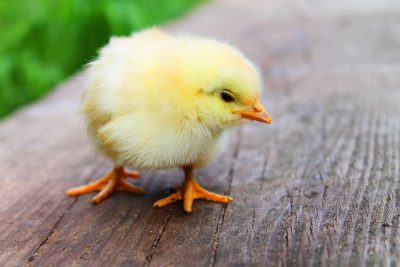Billions of animals are farmed each year for food, with the vast majority of these animals reared on intensive factory farms. But is an animal able to experience emotion? And do they feel stress or pain?
The definition of sentient is to be ‘able to perceive or feel things.’ As sentient beings, all animals—from cows, pigs and sheep to chickens, ducks and geese—are able to experience pain, fear, comfort, joy, and a whole host of emotions, just like humans.
The Secret Lives of Animals
Scientists have discovered that goats experience frustration when isolated from their herd mates or food is withheld from them. Other studies have found that the personality type of a fish can affect their likelihood of having certain parasites, or their ability to move past barriers when migrating.
Sheep are able to recognise other sheep’s faces, and remember them for up to two years, while mother hens teach their chicks which foods are best to eat. Cows show excitement when they discover how to open a gate when it leads to a food reward, and pigs are able to solve challenging problems, love to play, and each have unique personalities.
Animals experience emotions, and can suffer stress, distress, and fear. Farmed animals, in particular, are subjected to high levels of stress, from struggling to cope during transportation, experiencing grief when separated from their family or herd, and feeling pain during routine mutilations and slaughter.
While popular culture would have us believe that dairy cows all happily live out at pasture, egg-laying hens lead enriched lives perched on straw-laden roosts, and pigs spend their days rolling around in mud, sadly for most farmed animals that couldn’t be further from the truth.
The Effect of Factory Farms on Animal Emotions
Animals raised on factory farms, or concentrated animal feeding operations (CAFOs) – which globally account for 72 percent of poultry, 42 percent of egg, and 55 percent of pork production – lead miserable, destitute lives.
In the US, 99 percent of all farmed animals are reared intensively. From pigs kept in tiny cages called gestation crates where they can’t even turn around, chickens suffering deformities and heart attacks because they’re made to fatten up as quickly as possible, to calves being separated from their mothers at just 24 hours old – so that humans can drink their mother’s milk – animals are known to suffer terribly in the farming system.
It stands to reason that factory farms must be harming animals emotionally and psychologically, as well as physically. In the wild, animals – regardless of species – forage, explore, play, and learn social skills. These are all natural behaviors which animals need to conduct. It doesn’t matter whether the pig is caged or living freely in the woods: both feel the need to root, roam, and make a nest. Even inside barren cages, where there is not even one piece of straw, pregnant pigs desperately go through the motions of nest-building. It is devastating to see.
Giving Animals – and the Planet – a Brighter Future
Given that animals are able to feel such a complex range of emotions, isn’t it only right that we should reassess our relationship with other species, and consider how our choices impact on their lives?
Switching to a plant-based diet is the single biggest thing we can do to end this suffering. It is also a great decision for our long-term health, and for the planet.
Will you show compassion to all creatures by trying vegan? Sign up to receive the Million Dollar Vegan starter kit. It’s free to download and contains a whole host of delicious recipe ideas, tips on eating out, and information on life-changing documentaries to watch.
Caroline Burgess-Pike became vegan for ethical and environmental reasons, and has spent much of her professional and personal life campaigning for a better world for animals. Her career spans journalism, marketing for vegan brands, charity campaigns and corporate communications.



